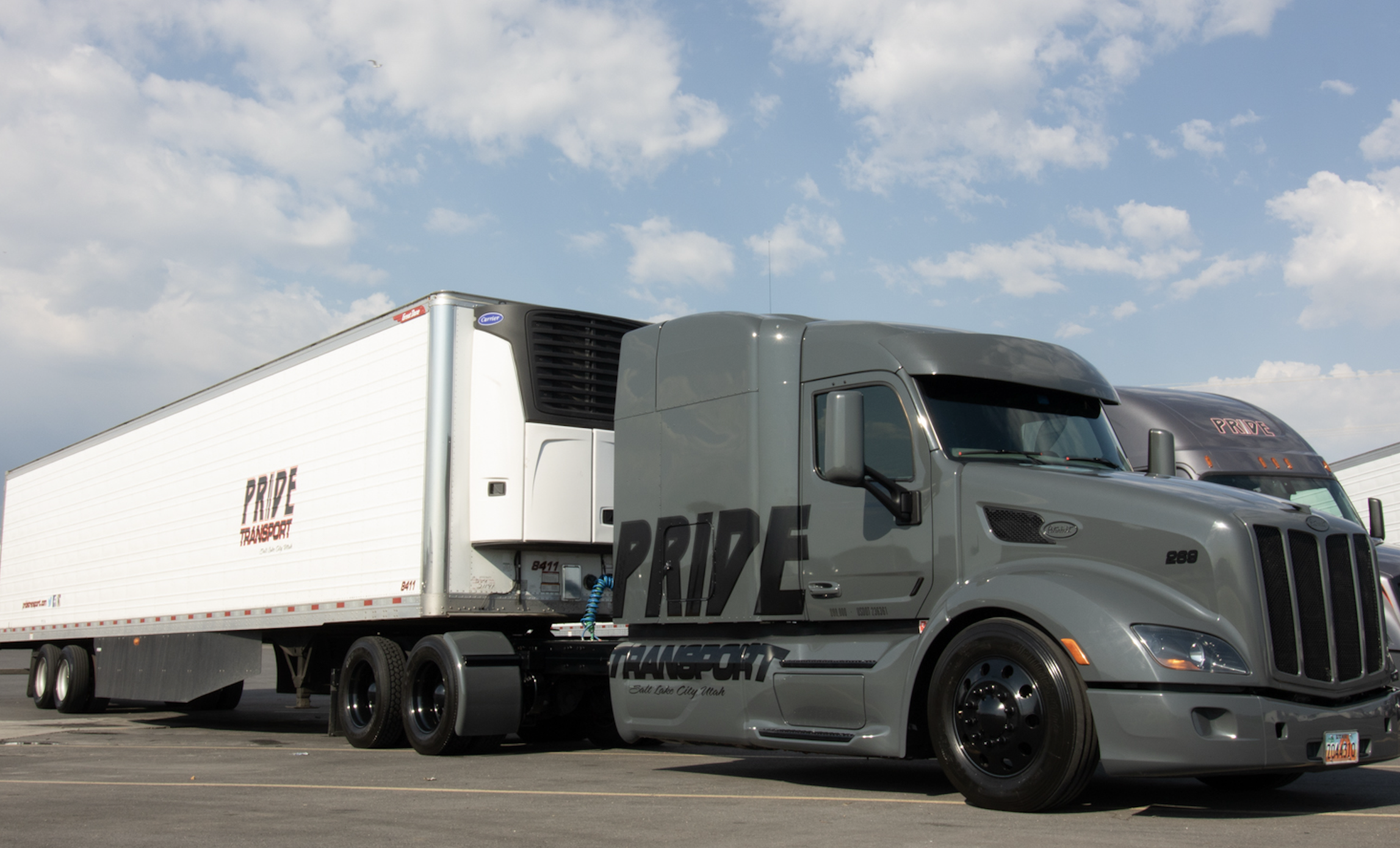by Pride Transport | Dec 19, 2024
For truck drivers, safety and efficiency on the road is incredibly important. Tire Pressure Monitoring Systems (TPMS) are transforming the trucking industry by enhancing tire safety, improving fuel economy, and reducing maintenance costs.
In this article, we’ll dive into how TPMS works, its benefits, and actionable steps truck drivers can take to maximize its effectiveness.
What is a Tire Pressure Monitoring System (TPMS)?
A Tire Pressure Monitoring System (TPMS) is a technology designed to monitor tire air pressure and alert drivers when it falls below or exceeds recommended levels. This real-time monitoring ensures that tires remain within safe parameters, reducing the risk of accidents and increasing overall efficiency.
Types of TPMS:
- Direct TPMS: Utilizes sensors inside each tire to provide real-time pressure readings, offering precise and accurate measurements.
- Indirect TPMS: Relies on the Anti-lock Braking System (ABS) sensors to estimate tire pressure by analyzing wheel speed differences.
Benefits of TPMS for Truck Safety
TPMS delivers significant safety benefits for truck drivers, including:
Preventing Blowouts
Blowouts cause around 31% of truck-related crashes in the U.S. annually, according to the Department of Transportation (DOT). TPMS detects under-inflated or over-inflated tires before they become a danger.
Enhanced Stability
Proper tire pressure improves vehicle handling and braking performance, reducing the risk of accidents in adverse weather or heavy traffic. When tires are inflated to the correct PSI, they distribute the truck's load more evenly across all tires, ensuring better weight balance and handling, which is especially important in maneuvering semi trucks in tight spaces.
For example, in an emergency stop, underinflated tires can cause uneven braking, making the vehicle pull to one side or skid. Proper tire pressure ensures that braking force is distributed evenly, reducing the likelihood of jackknifing or rollover accidents.
Quick Detection of Issues
TPMS provides real-time alerts, enabling drivers to address minor problems—like slow leaks—before they escalate. Addressing these issues promptly is a crucial part of emergency preparedness for truck drivers.
Imagine a driver hauling a fully loaded trailer on a busy highway when their TPMS sends an alert about a slow air leak in one of the rear tires. Without TPMS, the driver might not notice the issue until the tire is dangerously underinflated, increasing the risk of a blowout
The real-time alert allows the driver to safely pull over at the next rest area or truck stop to inspect and address the issue. This proactive approach prevents further damage to the tire, reduces repair downtime, and, most importantly, avoids a potentially dangerous situation on the highway.

The Impact of TPMS on Fuel Efficiency and Cost Savings
TPMS is not just about safety; it also plays a critical role in reducing costs for truck drivers and fleet managers.
Optimized Fuel Efficiency
Tires underinflated by just 1 PSI can reduce fuel economy by 0.2%, according to the U.S. Department of Energy. Over the course of a year, this could rack up significant fuel expenses. With fuel prices averaging $3.21 per gallon in the U.S., maintaining optimal tire pressure through TPMS can save hundreds annually on fuel costs.
Extended Tire Life
Proper tire inflation is key to making your tires last longer and perform reliably. When tires are underinflated, they tend to wear unevenly, especially on the outer edges, which causes them to wear out faster than they should. This uneven wear weakens the tire over time, leading to issues like tread peeling off or sidewall damage.
For an 18-wheeler, where the tires carry heavy loads, keeping the pressure at the right level helps distribute the weight evenly across all the tires. This prevents some tires from wearing out faster than others and saves money by reducing how often you need to replace them.
Reduced Maintenance Costs
According to industry reports, auto repairs cost an average of $500–$600 per incident, excluding the cost of lost time. By adopting preventive measures like TPMS, truck drivers can minimize these costs.
Practical Tips for TPMS
To ensure TPMS works effectively, follow these tips:
- Inspect Sensors Regularly:
- Clean and check sensors regularly to prevent dirt or corrosion from affecting accuracy.
- Calibrate Your System:
- Ensure TPMS calibration matches the load weight and weather conditions for precise readings.
- Respond Promptly to Alerts:
- Don’t ignore warnings! Address low or high-pressure alerts immediately to avoid compounding problems.
- Check Tire Pressure Manually:
- Use a tire pressure gauge weekly as a backup to confirm TPMS readings.
- Maintain Proper Inflation Levels:
- Follow manufacturer recommendations, typically between 80 and 120 PSI for semi-truck tires.
Meeting DOT Standards with TPMS Technology
Staying compliant with industry regulations is a critical aspect of trucking, and TPMS plays a vital role in helping drivers and fleet managers meet these standards. The DOT requires regular tire inspections to ensure vehicles meet safety requirements, and TPMS provides a reliable way to maintain tire pressure within DOT standards.
Drivers can also use TPMS data to demonstrate compliance during roadside inspections, showcasing a proactive approach to safety. This can streamline inspections at weigh stations and minimize the risk of fines or penalties.
Pro Tip:
Keep a record of TPMS data logs, especially for fleet vehicles, to streamline audits and demonstrate adherence to tire pressure standards.
How TPMS Helps You Drive Safer and Smarter
Pride Transport equips its fleet with advanced safety technologies like TPMS to ensure that drivers are protected on the road. Our commitment to driver safety isn’t just about technology—it’s about supporting our team with the tools and training they need to succeed.
Follow the tips above, stay proactive, and enjoy the peace of mind of knowing your tires are in top condition.
Looking for a company that prioritizes safety and efficiency? Pride Transport is always hiring skilled drivers who want to be part of a forward-thinking team. Explore opportunities with us today!
